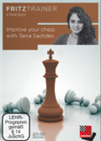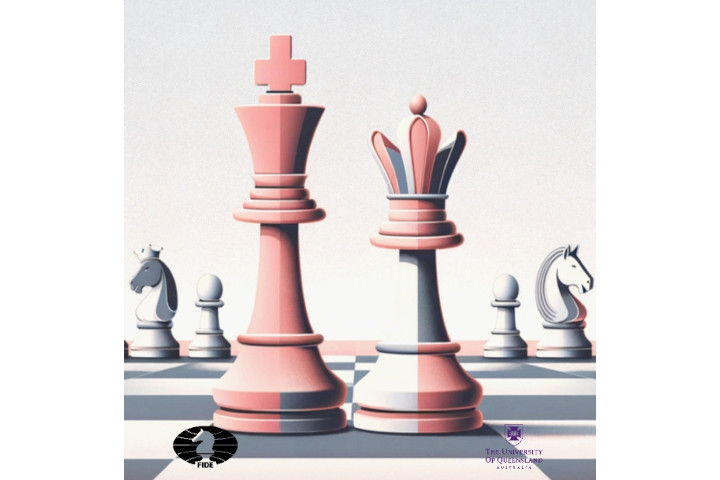2023 ranking unveiled
The International Chess Federation (FIDE) released the inaugural Gender Equality in Chess Index (GECI), an innovative instrument designed to measure and compare the level of gender equality in chess federations across the globe.
This statistical index introduces a comprehensive scoring system ranging from 0 to 100, with 100 denoting perfect gender equality. The GECI incorporates three indicators of Participation, Performance, and Progress to offer an all-encompassing view of gender parity in chess.

The Mongolian women’s team at the 2018 Olympiad in Batumi
“The GECI is a step forward in our understanding and promotion of gender equality in chess. We're moving beyond anecdotes to a more data-driven approach”, says GM David Smerdon (PhD Economics), the lead author of the report.
 On this DVD, well-known Indian WGM Tania Sachdev shows you how to evaluate certain positions and then find the right concepts and plans on the basis of her own games.
On this DVD, well-known Indian WGM Tania Sachdev shows you how to evaluate certain positions and then find the right concepts and plans on the basis of her own games.“It’s our aim to provide federations with clear benchmarks to track progress and to set goals in different dimensions of women's and girls’ chess”.
The 2023 GECI report reveals that Mongolia leads the rankings, boasting nearly 40% female participation among active FIDE-listed players, a significant rise above the global average. Following Mongolia are Sri Lanka and Uganda (the highest-rated African federation), which demonstrate high scores in participation and consistent progress in youth championships.

The Ugandan teams at the 2022 Olympiad in Chennai
FIDE interviewed a number of leading players and executives in countries that feature prominently in the rankings to better understand the factors behind their success. GM David Smerdon elaborates, “Mongolia’s triumph in the rankings is a testament to their strategies, which emphasize equal opportunity and active promotion of women and girls at every level. It’s an example of what can be achieved with dedication and clear policies”.
Insights from the interviews are summarized in a section of the report entitled Stories From The Rankings, which profiles high-ranking nations and underlines key themes such as women in leadership roles, resource allocation, and the presence of strong female role models.
The FIDE Gender Equality in Chess Index seeks to inspire international chess communities to reflect on their practices and policies to promote gender equality actively. The full report is published on the website of the FIDE Commission for Women’s Chess: wom.fide.com/geci/
It can also be downloaded in PDF format here: https://doi.org/10.14264/9bb291f
Source: Smerdon, D., Meyer, C.B., Reizniece-Ozola, D., Rodrigo Yanguas, M., & Sorokina, A. (2023). Report: 2023 FIDE Gender Equality in Chess Index (GECI). FIDE; The University of Queensland. doi:10.14264/9bb291f
In a total of 6 chapters, we look at the following aspects: the right decision based on tactical factors, decisions in exchanges and moves, complex and psychological decisions in longer games and in defence.
Links

























